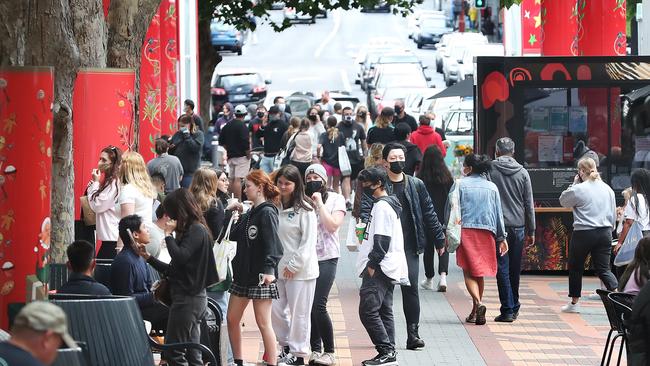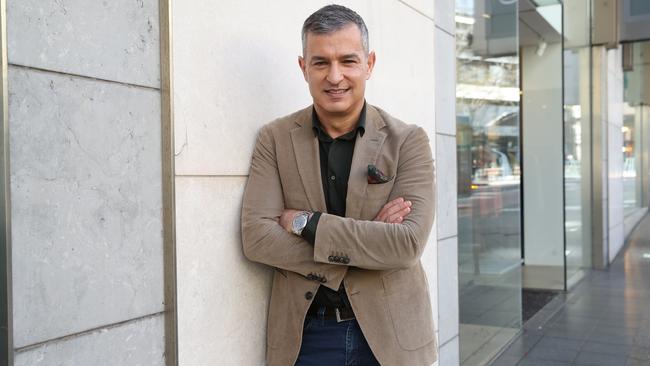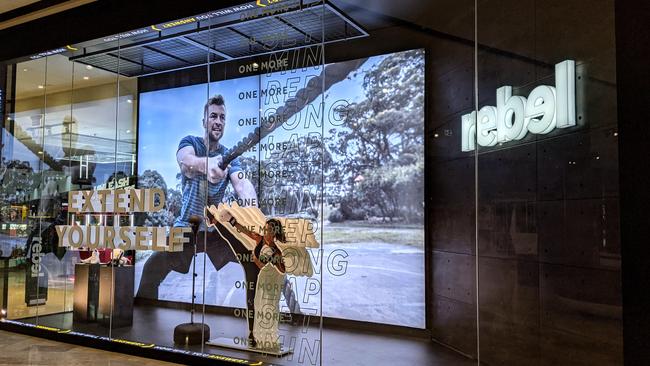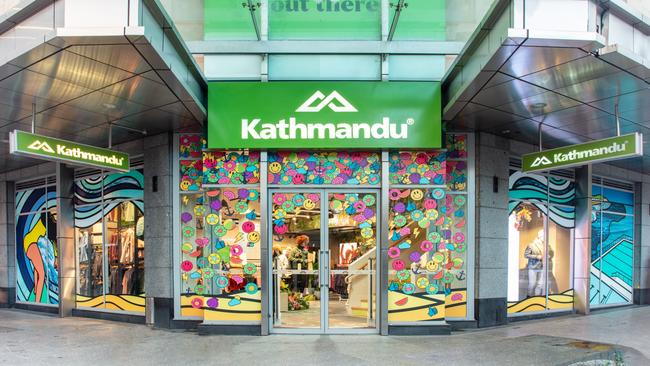Post-pandemic freedom to shop triggers a fall in online traffic for retailers, says Macquarie
City Chic, Best & Less and Peter Alexander are among chains to experience a fall in online traffic since Covid-19 restrictions were eased.

Website visit data suggests tough times for the nation’s smaller listed retailers, with weaker online activity compared to the elevated levels during the pandemic.
That’s the conclusion of work conducted by Macquarie’s retail team, which found large falls in website traffic for brands such as City Chic, Best & Less, and at Premier Investments’ Peter Alexander and Jay Jays chains.
Visits to the Rip Curl website – owned by KMD Brands – fell 34 per cent in Australia for December, the analysis found.
The downbeat estimates from the investment bank follow more optimistic preliminary data from the Australian Retailers Association and Westpac, which found a holiday spending splurge higher than previously expected – at a record $74.5bn, up 8.6 per cent compared to the previous year.
But that data, the association’s chief executive Paul Zahra said in late December, also showed that the greatest growth was with department stores, which saw sales on Boxing Day rise 23.6 per cent, followed by cafes and restaurants.

Macquarie, in a note to clients, said it expected a 30 per cent decline in sales at City Chic’s Avenue brand in the six months to December 31, with overall Australian and New Zealand sales at City Chic likely down 20 per cent.
In December, City Chic told investors that revenues were 7 per cent lower in the first 24 weeks of the financial year – and that the company was increasing its promotional activity to drive sales.
That would lead to lower margins, the company warned. It was on track for an underlying loss for the first half of the financial year.
Macquarie said it expected the company was “on track to hit the bottom end of its December inventory target” supported by an acceleration of discounting, and helping City Chic chief executive Phil Ryan meet his bonus target.
The investment bank now expects the company to make a loss in the full financial year, where it had previously forecast a “small profit”. Lower sales and more discounts over 2023 would also lead to a 63 per cent fall in earnings for the following financial year, the analysts told clients, cutting the price target on City Chic shares from 72c to 42c.
City Chic closed down 3.4 per cent, or 1.8c, at 43c. They have slid more than 90 per cent in the last 12 months after reaching almost $6 early last year during an online shopping boom spurred by the Covid-19 pandemic.

But it is not all negative among mid-cap retailers, with the bank’s analysts positive on the performance of Super Retail – which runs the Supercheap Auto, rebel, BCF and Macpac chains.
In particular, the fitness category has been performing strongly and is ahead of pre-pandemic levels, leading analysts to raise earnings expectations at Rebel.
“To understand consumer appetite for products stocked by rebel, we continue to monitor spending on sporting retailing and other leisure,” the note reads.
“For (the 2023 financial year), we assume rebel’s sales perform ahead of 2022 and pre-Covid levels on a like-for-like basis. This is a result of investment by Super Retail under way in customer experience and store format.
“For the December half, these categories have performed ahead of pre-Covid levels when assessing dollar and spending volumes. In relation to Covid-impacted periods, there appears to be some broad moderation. Yet, volumes have trended up vs 2021 levels for the December half in full.”
Macquarie lifted its price target for the company’s shares from $10.46 to $10.91. They rose 10c to $11.36 on Tuesday.
Other brands owned by Super Retail, however, could be impacted by weaker travel spending for the six months to the end of December compared to pre-pandemic levels, and a view forward booking levels for the key Northern Hemisphere period are weak.
“To gauge appetite for travel, including offshore, we continue to monitor spending for categories such as airlines and lodging in an aggregated format,” wrote the Macquarie analysts.
“This travel barometer is not only helpful to understand the shift in spending towards travel with sustained reopening of borders, but also performance of both Macpac and Kathmandu as both brands are exposed to travel-related purchases.

“We reiterate Macpac and Kathmandu being exposed to outbound tourism to the northern hemisphere winter over late 2022 and early 2023. We assume some recovery in these brands … impacted by lockdowns and lack of northern hemisphere travel around Christmas.”
Among other smaller retailers, Universal Store website visits jumped 29.7 per cent for the December half, but this did not translate to sales – down some 20 per cent year-to-date.
Macquarie noted it reflects “overall greater engagement” across Universal’s online and in-store offerings. “We also note website traffic growth outperforming peers such as Glue Store and General Pants,” it said.
Traffic for Premier Investments’ Peter Alexander brand continues to moderate off pandemic-levels, down 40.5 per cent in the December half. Peter Alexander represented some 30 per cent of sales for Premier.
Smiggle website traffic was flat in the first half of this financial year, with the investment bank noting it was yet to actualise results in January when key back to school trading occurs.
Premier shares fell 2.2 per cent on Tuesday to close at $24.85.




To join the conversation, please log in. Don't have an account? Register
Join the conversation, you are commenting as Logout